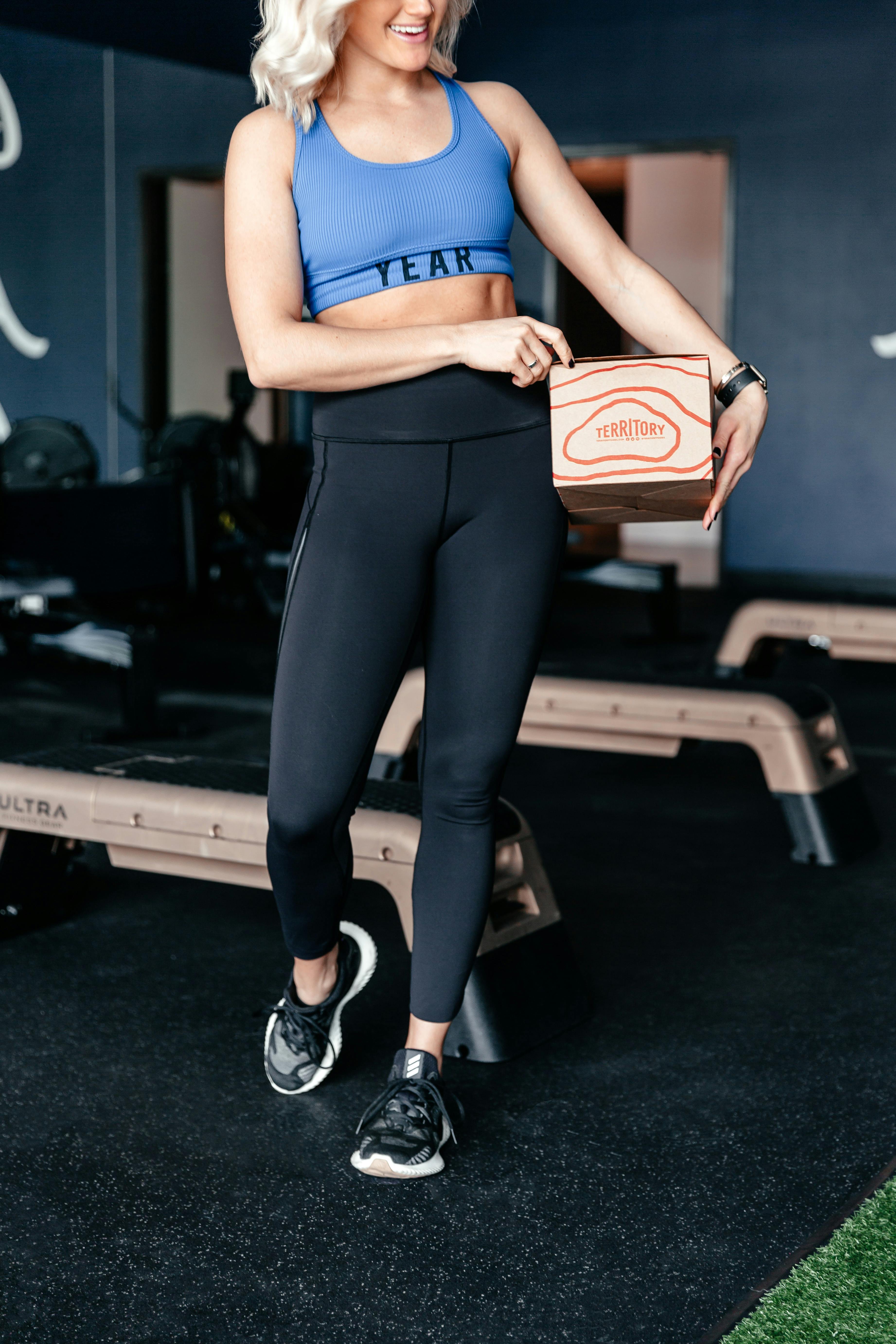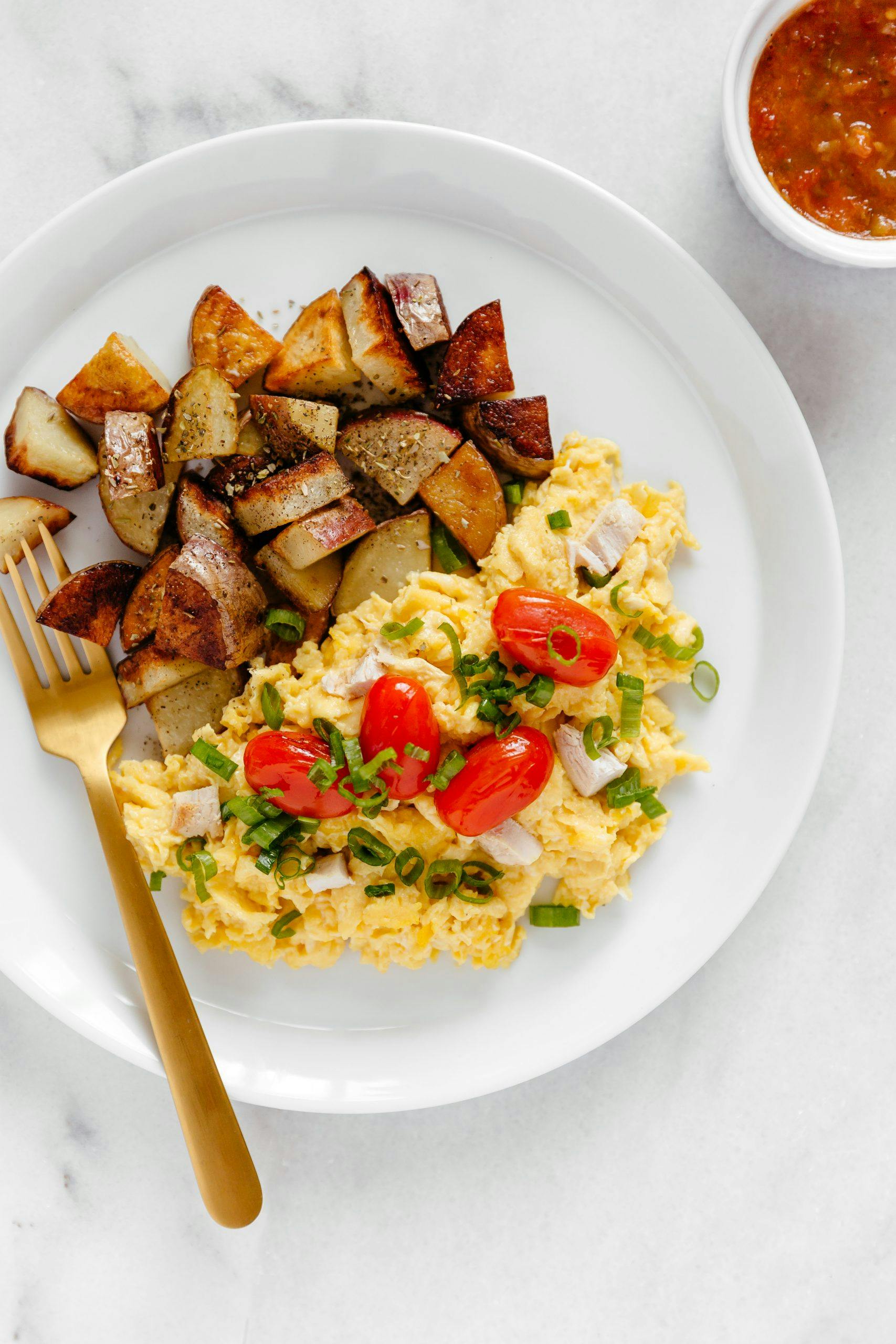
How To Fuel Before & After A Sweat Session
By Danielle McAvoy
February 21, 2023
Walk into a gym and other than the same membership, the people in there may have nothing in common. Luke is over by the weights curling enormous dumbbells; he wants to grow his muscles. Jim is with a personal trainer learning how to do burpees; he wants to shed a few pounds from his dad bod. Leslie is speed-walking on the treadmill; she’s blowing off steam after a stressful day. I’m on the rower trying to beat my best 2k time; I like winning.
Whether we exercise to lose weight, gain muscle, manage stress, or as a healthy outlet for competitiveness, there is one thing we all need to do the same – fuel our bodies properly.
When and what you eat before and after a workout is critical to reaping the benefits, regardless of whether those benefits are fat loss, muscle gain, or improved mental and physical fitness.
The way we metabolize food is very personalized, so people will feel energized by a certain mix of macronutrients. But there are some things that apply to everyone.
Pre-workout fuel
Carbs: quick n’ powerful
Before a workout, you want to eat mostly carbohydrates. The body burns carbs when the muscles need quick energy for movement. We store carbs in the form of glycogen. If you don’t have any circulating sugars from food, your body will draw from its glycogen stores. However, when glycogen runs out, you also run out of energy. It’s called “hitting the wall,” feels like extreme fatigue, and it’s very difficult to keep working out. Eating some carbs before a workout can help you avoid hitting the wall before your workout is over.
Protein: rebuilding machines
You can also eat a small amount of protein before a workout. The purpose of eating protein before the sweat session? When your muscles break down during the workout, you have some protein circulating and available to be used for immediate repair and growth. Because Luke’s goal is to grow big muscles, it would be good for him to eat some protein before working out so it’s available to his biceps as soon as they start to break down.
Fat: slow n’ steady
Some people feel prefer fueling with fat in addition to carbs and/or protein. Fat is a rich energy source, but it takes longer to digest and break down into useable energy. Fat can also make you feel fuller than carbs, which is not comfortable heading into a workout. Leslie happens to be limiting carbs, so she would’ve fueled for her workout by eating high-fat foods for lunch 5 hours ago.
An empty tank might not be a bad thing
It can also be ok to work out fasted. I don’t eat before workouts. I’m not hungry between my 6:15am alarm and the start of 6:45am CrossFit class. I don’t have any energy issues because my glycogen stores are built up from the food I ate the day before and a good night’s sleep. If I were to work out later in the day, or wake up hungry, I would put some carbs in the tank before I tried to workout. I do always drink 12 oz of water with natural pre-workout mixed in on my walk to the gym. I like plant-based options that have natural sources of caffeine, like this or this.
Hydration is key
Even the slightest bit of dehydration can cause a major energy lag. Water needs are truly different for everyone, but 8 oz within 30 minutes before a workout and 8-16 oz right after is a good start. Whether you hydrate during a workout depends on the activity length, sweat loss, and thirst level.
Timing your pre-workout fuel
When to eat before a workout really depends on what you can tolerate. If you eat a regular meal 3-4 hours before, a balance of carbs, protein and fat is good. You most likely don’t need a snack. If you’re hungry and need a pre-workout snack, 1-2 hours before is a good rule. And the closer it is to the exercise, the heavier your snack should be weighted in carbs. If you eat too close to a workout, your body will be busy digesting what’s in your belly and not have as much energy for your muscles. And eating too close can also make you feel pretty gross.
Particular foods can be really individualized, too. While an apple might work for some, it’s too high in fiber and can be uncomfortable in the gut for others. Generally, the simpler the food, the better.
High carb pre-workout snack ideas
Eat one hour before a workout:
- Small bowl of oatmeal w/ fruit
- Dates
- A banana w/ 1 Tbsp of peanut butter
- Juice
- Crunchy granola bar
Eat 2-3 hours before a workout:
- Peanut butter & banana sandwich
- Yogurt w/ berries & granola
- Fruit smoothie
- Apple w/ nut butter
- Energy balls
- A Territory muffin
Post-workout fuel
What you eat after a workout may be even more important than what you eat before. During a workout muscles use up their glycogen stores for fuel. Muscles also break down and get damaged. We need carbs to replenish the glycogen stores, and protein to repair and rebuild the muscle tissue. The ideal ratio is 3 grams of carbohydrate to 1 gram of protein.
Your body is primed to replenish glycogen and rebuild muscle immediately after exercise, so you should eat a combination of protein and carbs as soon as possible after exercising. Within 30 minutes is ideal.
Fat slows down the digestion process, but it does not impede the absorption of other nutrients. So it’s ok to eat fats after a workout, but it’s more important to eat carbs and protein. Fueling properly after a workout is as important to your recovery as rest.
Post-workout recovery ideas:
Eat within 30 min of ending your workout – On the go ideas:
- Bars – you want ones with a good blend of carbs and protein, such as Rx bars
- Yogurt w/ granola
- Dried fruit + meat jerky
- Trail mix
- Hard boiled egg + a muffin
- Seasoned pouched tuna w/ almond crackers
- Chocolate “milk” (such as oat milk w/ a scoop of chocolate protein powder)
Eat within 30-60 min of ending your workout – At home ideas:
- Grilled chicken & baked sweet potato
- Quinoa w/ edamame
- Salmon & brown rice
- Fruit smoothie w/ scoop of protein
- Scrambled eggs & home fries

Need some help with your pre/post workout fuel? Territory makes refueling easy – our food is responsibly sourced, crafted by local chefs, and contains no gluten or dairy. Our meals are filled with clean proteins, digestible carbs, and lots of nutritious veggies. The macros are listed on each meal label, making it easy to grab a delicious box of protein and carb-y goodness to optimize recovery and make sure you’re maximizing each and every workout.